Ballon d’Or Winners: Historical Trends
As 2016 starts to draw to a close, the footballing community turns its attention to the annual Ballon d’Or awards – celebrating the best players in world football. This prestigious award has a long and rich history dating back to 1956, and as the following list shows, has been won by some of the greatest names in football history:
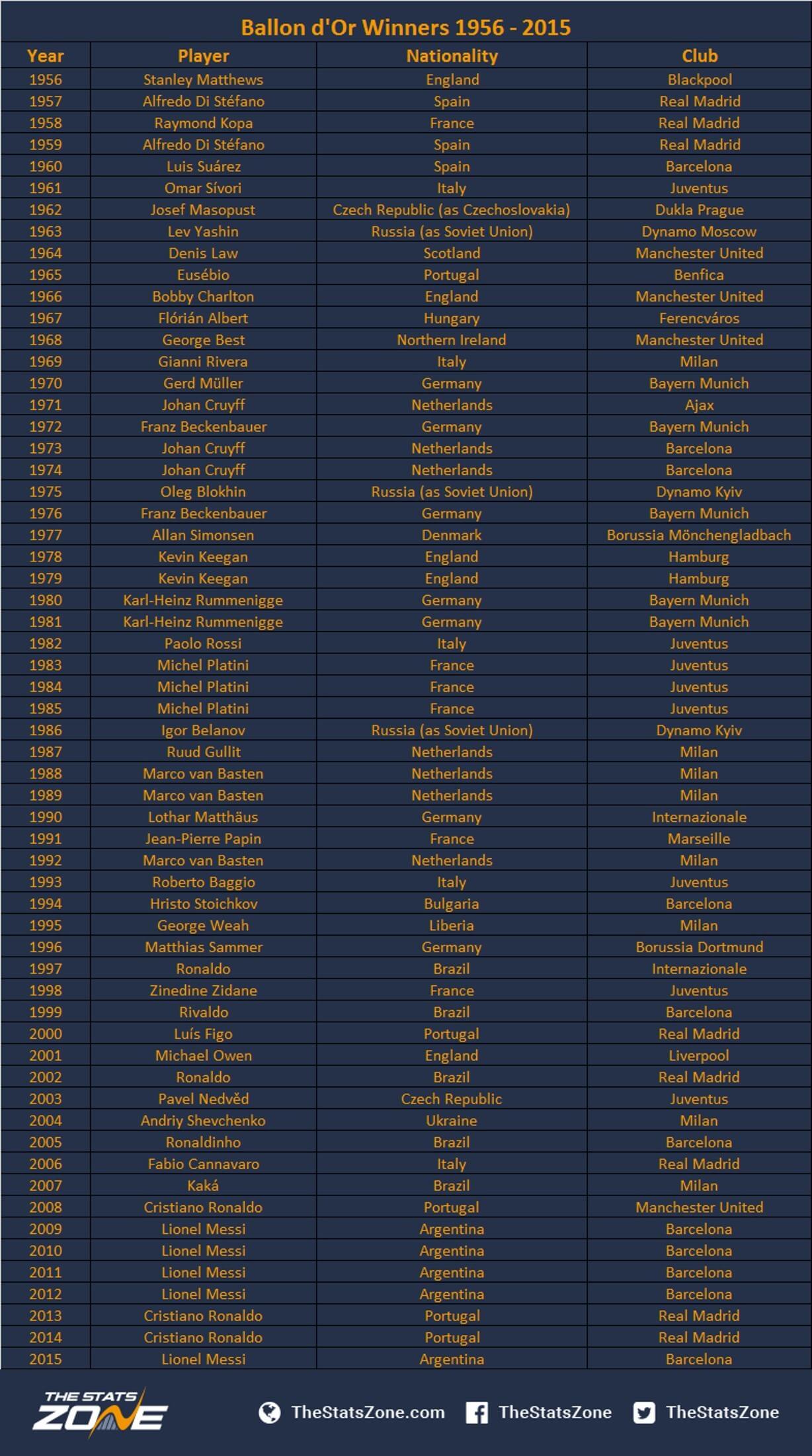
The last eight years have been dominated by the ongoing rivalry between Cristiano Ronaldo and Lionel Messi, and 2016 is no different as Cristiano Ronaldo is a clear favourite once more after winning The Champions League and European Championships earlier this year. However, after what can be described as an unpredictable year, nothing should be considered a foregone conclusion. A full breakdown of the 2016 nominees and the other favourites can be found here.
In this article, we want to delve into the history books and see what trends emerge as we approach the 61st awarding of the Ballon d’Or. We’ll start by analysing the nationalities of all the winners:
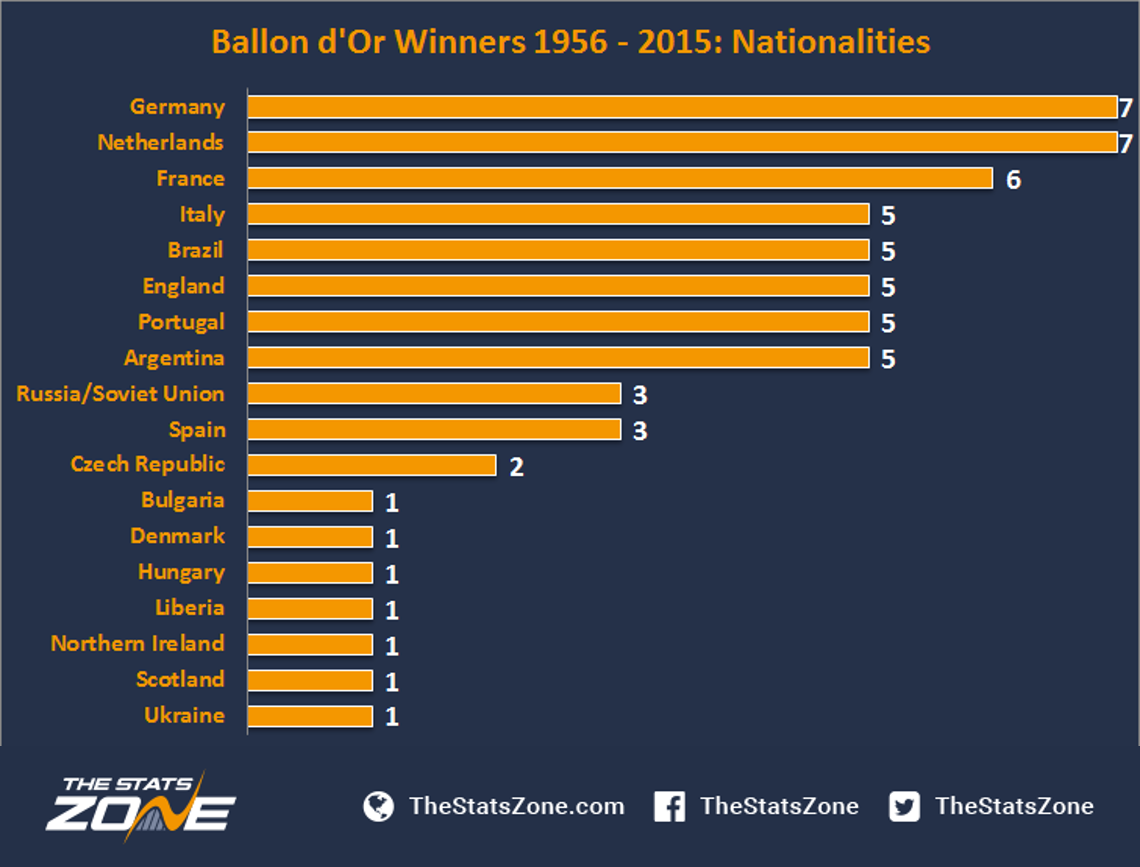
Germany and Netherlands boast the best record for producing Ballon d’Or winners, with an impressive seven victors each. Furthermore, the seven German triumphs are spread between five different players (Gerd Müller, Franz Beckenbauer, Karl-Heinz Rummenigge, Lothar Matthäus, and Matthias Sammer), whereas the seven victors from the Netherlands were only spread between three players (Johan Cruyff, Ruud Gullit and Marco van Basten). Interestingly, three out of the five winners from Germany were defenders, a position that has only taken home the award on five occasions since 1956.
The illustrious award has not been without its criticism in recent years; World Cup winning German defender Philipp Lahm criticised the Ballon d’Or in 2015, stating it was merely a popularity contest for strikers and suggested it should be broken down into awards for each position (goalkeepers, defenders, midfielders and forwards). Are Lahm’s criticisms fair?
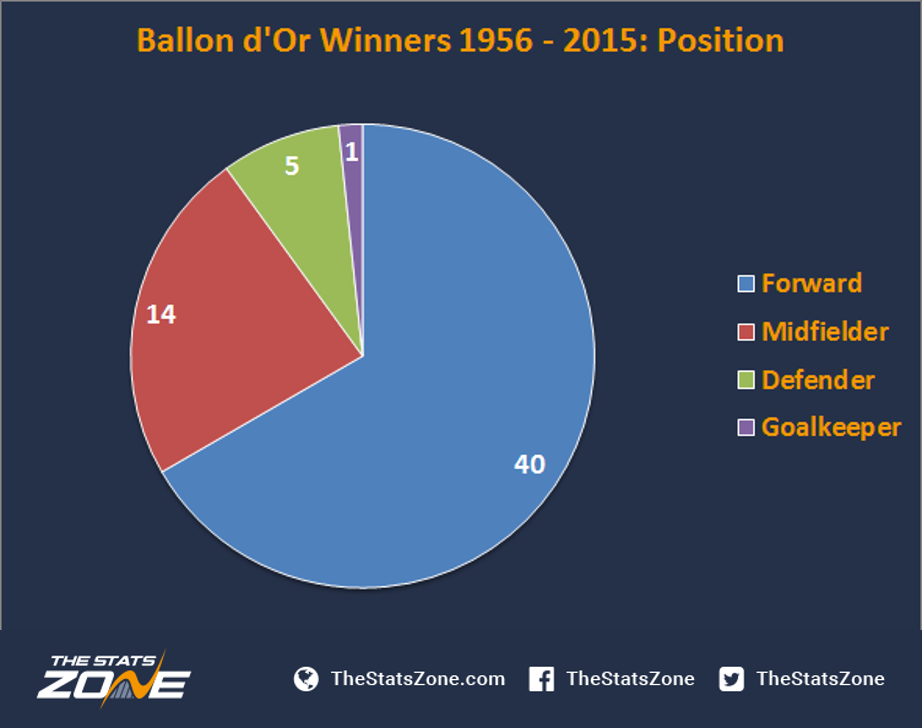
Since the inception of the award in 1956, there has been a clear majority (67%) of winners that have been forwards, and in 60 years only five times has a defender been recognised as the world’s best player. Even more notable is the fact that the great Dynamo Moscow goalkeeper Lev Yashin is the solitary shot stopper to win the award – he collected the gong in 1963. Does this suggest that voters are more impressed with goals and intricate attacking play than organised defending and brave goalkeeping? One person who does prefer the latter is ex-England manager Roy Hodgson, who famously voted for two defenders and a goalkeeper in 2015, completely ignoring the hot favourites Messi and Ronaldo.
Debate regarding the world’s best league continues to divide opinion amongst fans and pundits, so which domestic league has produced the most Ballon d’Or winners?
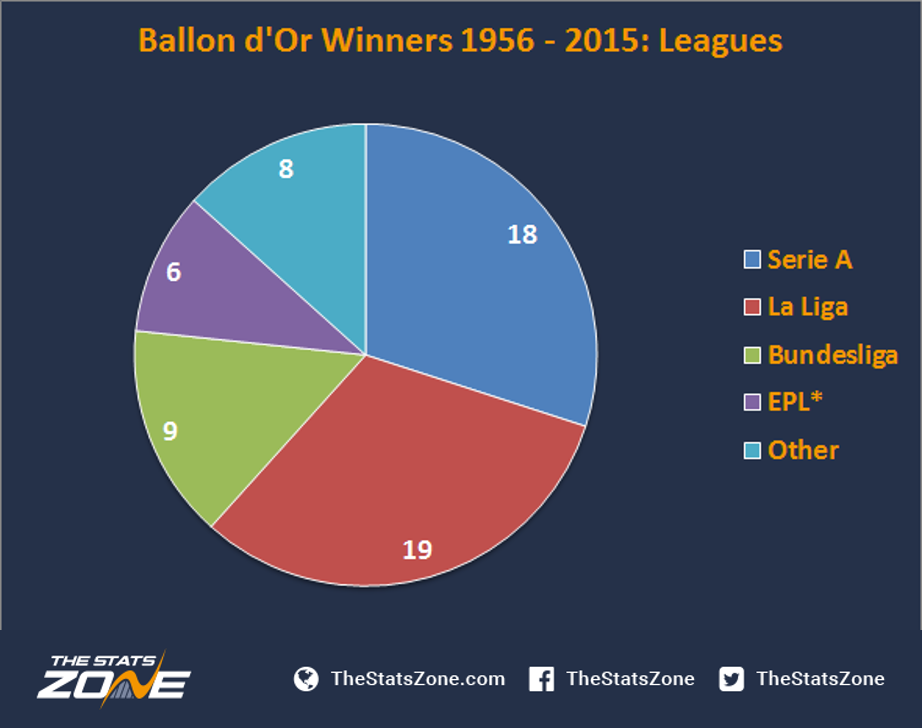
* Includes English Division 1 before introduction of the English Premier League (EPL)
Spain’s La Liga has hosted the most winners, closely followed by Italy’s Serie A. However, Spain’s supremacy has only been achieved in recent years. In the last 10 seasons, eight players from La Liga have been awarded the prize, no small part to Messi and Ronaldo’s dominance. Only 13% of all winners have come from a domestic league that does not include the top four European leagues (England, Spain, Italy, and Germany). All of the winners based in Spain have only come from Barcelona or Real Madrid, while the winners from Italy have come from Juventus, Milan, or Internazionale.
Finally, we look at which clubs have been represented over the years:
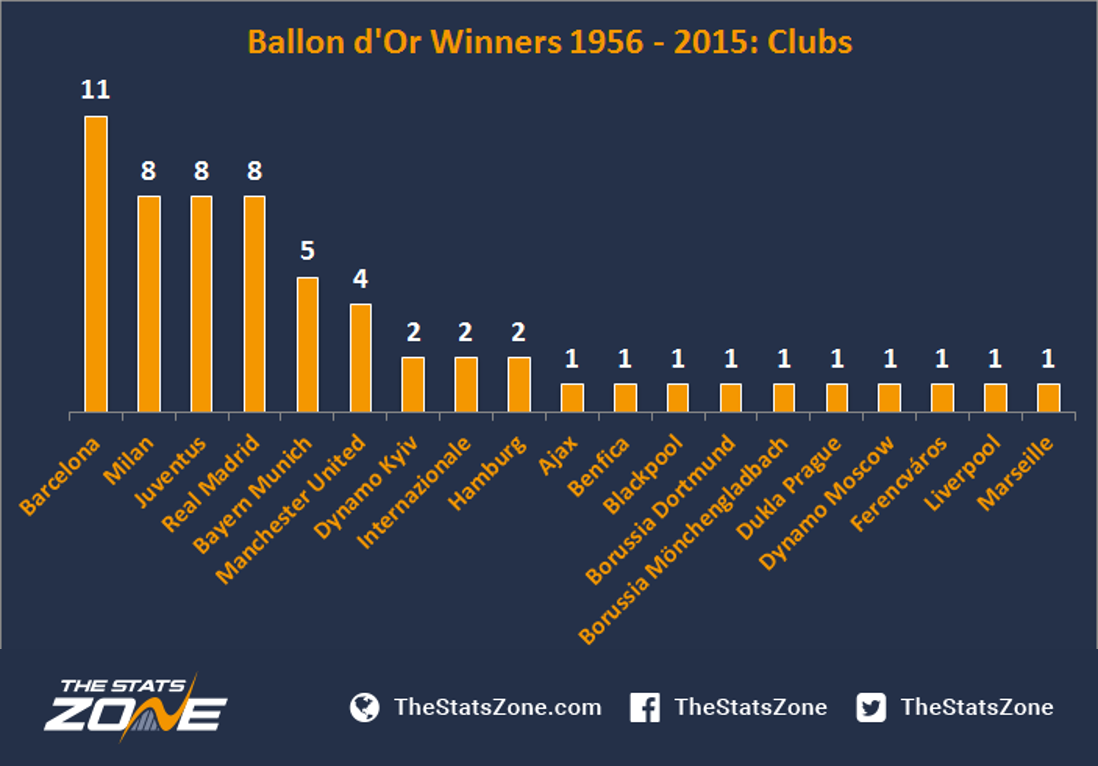
The usual suspects appear at the top of the list; Barcelona lead the way with 11, but once again this is largely down to Lionel Messi’s five victories in the last 10 years. Given that one of Ronaldo and Messi are hotly tipped to take home the crown once more, Spanish club dominance looks to continue for another year at least. Further down the list, it’s interesting to see smaller teams such as Blackpool (Stanley Matthews) and Dukla Prague (Josef Masopust) represented in the past. It seems that nowadays, you need to ply your trade for one of the European giants in order to be considered a candidate.











